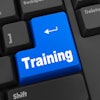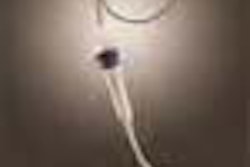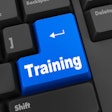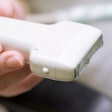A few days from now, as the world holds its breath and leaps into a new century, researchers in Pennsylvania will be watching medical devices everywhere, looking for signs that a year with too many zeroes has confused the machines and skewed patient records.
Beginning at 8:00 a.m. EST on December 30 and continuing for 48 hours nonstop, the international health research agency ECRI will monitor and compile detailed information on Y2K problems in medical devices, including imaging equipment, from its global network of participating hospitals.
To gather the information and post it online, ECRI has established a Y2K-problem reporting center at the organization's headquarters in Plymouth Meeting, PA. When the center hears of an equipment malfunction, ECRI staff will immediately review the information and post it on their Web site at [email protected], where it will remain for several weeks.
If you experience Y2K problems with your own equipment, you're invited to join the project by emailing a problem report to [email protected]. If you can't get online due to, say, an apocalypse, try calling the reporting center at 610-825-6000, ext. 5050, or faxing 610-834-1275.
"We'll be posting any information on post-Y2K failures that we hear about in the earliest time zones," said Jim Keller, the ECRI manager in charge of the reporting project. Keller said he can't predict how much information will turn up. "The site could be empty -- that's a possibility -- or we could hear about problems," Keller said. "It's a guess."
The Web site will offer detailed information about any Y2K problems encountered, including manufacturer names and contact information, model names, software versions, and any available solutions and recommendations.
Although live 24-hour monitoring will end January 2, the e-mail address will remain active, and the center will continue to accept phone reports and post new results during working hours for several days after the new year begins. The database, which will be offered free of charge, will remain on the site for a few weeks, according to Keller.
The Web site could be interesting reading for industry watchers -- and a test of sorts for manufacturers, who have spent the past couple of years posting Y2K fixes on their Web sites, along with cheery assurances of complete Y2K readiness. Keller said he believes that overall, manufacturers, customers and independent researchers have done a good job of finding and solving potential problems, and that most equipment users have been diligent about downloading and installing the fixes.
"The purpose of the Web posting," he said, "is to provide information that may have slipped through the cracks. People can log on to find out about problems that may not have been uncovered by manufacturers and other people in the past several years."
Along with manufacturers' Web sites, the Food and Drug Administration has compiled a wealth of information on Y2K readiness for medical devices at www.fda.gov/cdrh/yr2000/year2000.html. While reporting that "the vast majority of medical devices will function without any potential health or operational problem after December 31, 1999," the agency says unexpected problems could still occur.
The FDA urges anyone who becomes aware of a Y2K problem with serious implications for patient safety to call its Emergency Operations Center at 301-443-1240, or the FDA Information Hotline at 888-463-6332.
ECRI is a nonprofit organization, founded in 1955 as the Graduate Pain Research Foundation. The organization later changed its name to the Emergency Care Research Institute, and over the years has gained extensive experience in emergency medical care, medical device evaluation, and risk management in medical institutions. The World Health Organization recognized ECRI as a collaborating center in 1987. Keller said ECRI became involved in the Y2K project through its work in evaluating technology for hospitals, and evaluating products independently for manufacturers.
So what could happen at midnight? According to Keller, an unexterminated Y2K bug could cause a device to post the "wrong patient birthdate, date of procedure or current date" on an exam, for example. And without getting specific, Keller says he knows of "just a few" instances of known Y2K problems that remain unfixed.
While errors in patient records may seem harmless, any health worker knows that the ultimate result can range from mere annoyance to tragedy. Moreover, anyone who's drawn a conscious breath in 1999 knows that Y2K could bring problems that are far more daunting than botched patient records.
To help health care facilities prepare for the worst, ECRI published a book on Y2K readiness earlier this year, and has trained its hospital clients to deal with the most likely post-Y2K problems, starting with the hospital's most basic needs: electrical power, heating and air conditioning systems.
"We've been telling people that at a minimum, their backup generators need to be working and they need to have a good understanding of what the capacity (for problems) is, just in case the scenario that people have been talking about does occur," Keller said.
While Keller isn't expecting any major problems in the hospitals, he warned that "there may be isolated power outages, and the staff needs to be prepared for the possibility that they may lose power to some equipment. Maybe we'll be lucky and people will be having a good old time on the New Year," Keller said, "but it's hard to predict."
By Eric Barnes
AuntMinnie.com staff writer
December 27, 1999
Copyright © 1999 AuntMinnie.com

















